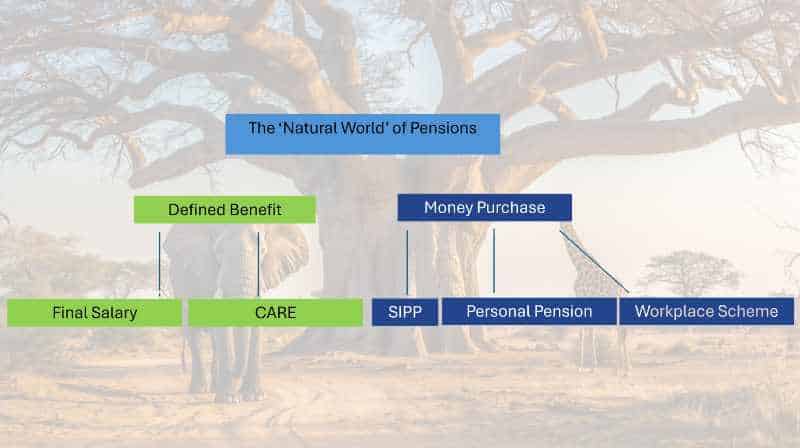
Inheritance Tax Planning Basics
Inheritance tax (IHT) is one of the more emotive taxes; when you have worked hard all your life and made sensible financial decisions to build up your net worth and paid tax along the way (tax on earnings, dividends, profits, buying goods and services, buying property, fuel, alcohol, tobacco (more fool you for smoking anyway) why should you have to pay 40% on excess wealth when you die too?
There are legitimate ways to reduce the inheritance tax payable on your estate but the simple premise is that you can’t have your cake and eat it.
What I mean by that is you can’t keep control of your money and reduce your potential IHT liability. For example, the most effective way of reducing your estate is by giving the money away, but then it isn’t yours to use at a later date if needed.
Inheritance tax is a complex area of financial planning that couldn’t be covered easily in a blog post (without making it very long and probably sleep-inducing) so I shall keep this to the basics.
Not Everyone Will Have IHT To Pay Anyway
Firstly, not everyone will have to pay IHT anyway. There is a threshold level of personal wealth, below which IHT is exempt. Known as the Nil Rate Band the threshold is currently £325,000 per person but where the main residence is being inherited the allowance is increasing incrementally up to £500,000 by 2021 (and by CPI thereafter).
This additional allowance won’t be available in full to everyone; where total estates including the value of the home are worth over £2m the additional relief is withdrawn at a rate of £1 for every £2 over the threshold (so the additional threshold is totally removed for properties worth £2.35m).
Other Exemptions
There are also other exemptions that help chip away at a potential IHT liability. Firstly there is an annual exemption of £3,000 per person and 1 year’s unused relief can be carried forward. This would make a total exemption of £12,000 for a couple in the first year of their IHT planning.
The transfer of wealth between spouses is also exempt. This applies in their lifetime and on death, so, if one spouse dies without using up any of their nil rate band the surviving spouse can inherit it (making the total nil rate band £1m by 2021 where a residential property is included and the total estate is below £2m).
Regular gifts from income are exempt as long as they are (as the title suggests) regular and from income. They must also not be to such a value that the donor’s lifestyle is significantly reduced as a result of making the gifts.
Wedding gifts of up to £5,000 per child, £2,500 grandchild or great-grandchild and £1,000 for a non-relative are exempt as are donations of any value to charities or political parties.
What is more, the IHT rate is reduced to 36% if 10% or more of the estate is gifted to charity on death.
Small gifts of up to £250 can be given to as many people as you wish provided no other annual exemption has been used on the same person.
The 7 Year Clock Rule
If people know anything about inheritance tax it tends to be the 7-year clock rule. This refers to the fact that any gift that is made above the annual or other exemptions it is treated as being outside of the estate after 7 years. The law is actually a bit more generous than this because the tax liability is tapered down after 3 years so it is only if death occurs within 3 years of a gift being made that the full 40% inheritance tax rate would apply for that particular gift.
And, a gift in IHT terms refers to any asset that has a value be it money, property or personal possessions (chattels as they are referred to) such as antiques, jewellery or works of art.
You Can’t Give Something Away and Still Enjoy It.
Thinking back to the principle of not being able to have your cake and eat it, you can’t give something away and still enjoy it (without a financial cost). The common example is a home or holiday home. It is not possible to pass the holiday home in Padstow (where the children spent many happy summers and the local fish restaurant was just divine, even though it did take 8 hours to get home to Surrey that one ghastly bank holiday Monday, but thank god we were in the SUV) to the kids but still enjoy going there as and when you please as if it was still your own.
Or the rare Picasso you found at that car boot sale couldn’t be given to the children even though it is still hanging above your fireplace because you haven’t got anything to put there in its stead.
Trusts
It might be that you want to give money away but you don’t want the recipient to have access to it for the time being. Perhaps because the children are too young to make wise financial decisions with a large sum of money or you are suspicious of Bryony’s new boyfriend’s motives.
This is where trusts come in. There are different types with different purposes but the simple premise is that they enable the settlor (person gifting the money) to control who the beneficiaries (people will ultimately benefit from the gift) are, what they will get and when.
Beneficiaries can be expressed at the outset (absolute trusts) or can be decided upon in the future and varied over time (discretionary trusts). They can be beneficiaries of income (a life-interest) or a final capital sum (remaindermen).
Trusts are taxed differently and are more complex to set up so they aren’t the perfect solution but are a logical option for many people who want to ensure their estates are managed effectively and the IHT liability kept to a minimum.
You might also not want to fully commit to giving capital away, which is where loan trusts come in. Again, remembering the principle of not being able to have your cake and eat it; where a loan is made to the trust, the original capital remains inside the estate but any growth is outside of it. Loans trusts can, therefore, be effective first steps into IHT planning or a part of a bigger exercise.
Discounted Gift Trusts are another useful estate planning stepping stone. Capital can be a gifted away whilst also providing a regular income for life.
A Pension Fund Can Be The Most Efficient IHT Investment
Most people tend to see pension funds as a means to provide an income in retirement with tax advantages to boot. However, they are also an effective IHT planning vehicle too.
Since George Osborne kindly gave everyone the opportunity to use their pension fund to buy a Lamborghini (or Dacia depending upon the size of it) he also opened up the possibility to pass the fund down generations on death rather than just to the surviving spouse. And because pension funds are outside of the estate for IHT purposes, if the death of the pension holder occurs before age 75 there is no tax liability (after age 75 the value of the fund is taxed at the recipient’s marginal rate of tax).
A simple but effective bit of planning everyone with a pension fund should do is to make sure they have nominated beneficiaries for the pension funds. Whilst the pension fund companies aren’t obliged to follow the wishes they generally do (unless you nominate the local cat’s home despite leaving behind a dependent wife or child on your death) and it is easy to do with a simple later to your pension provider or administrator.
What if You’ve Left Things Too Late
Sometimes, whether it is because of lack of awareness, lack of organisation or just an expectation of living forever, people don’t get around to IHT planning until it is too late. There is an option that can be of use for the situations where the 7-year clock is ticking a bit too slowly and that’s using Business Property Relief legislation.
Aimed at encouraging investment in small, high growth companies that help fuel the economy, an investment that is made in a qualifying company is deemed to be outside of the taxable estate if held for a minimum of two years. The rules around what makes a company a qualifying one are complex but it is an option worth considering.
Like all things though, there are downsides and by definition of the fact that investments are made in small, high growth companies, you could be exchanging IHT savings with a risk of greater capital losses.
So, IHT planning isn’t easy. The challenge is to understand how much money you need to make sure you can maintain your freedom and financial security for the rest of your life and how much is a surplus that you would be comfortable giving away to minimise IHT on your death.
If you would like to discuss how you can keep your hard earned wealth out of the hands of the Chancellor of the Exchequer contact me.
Photo by Ana Tavares on Unsplash






